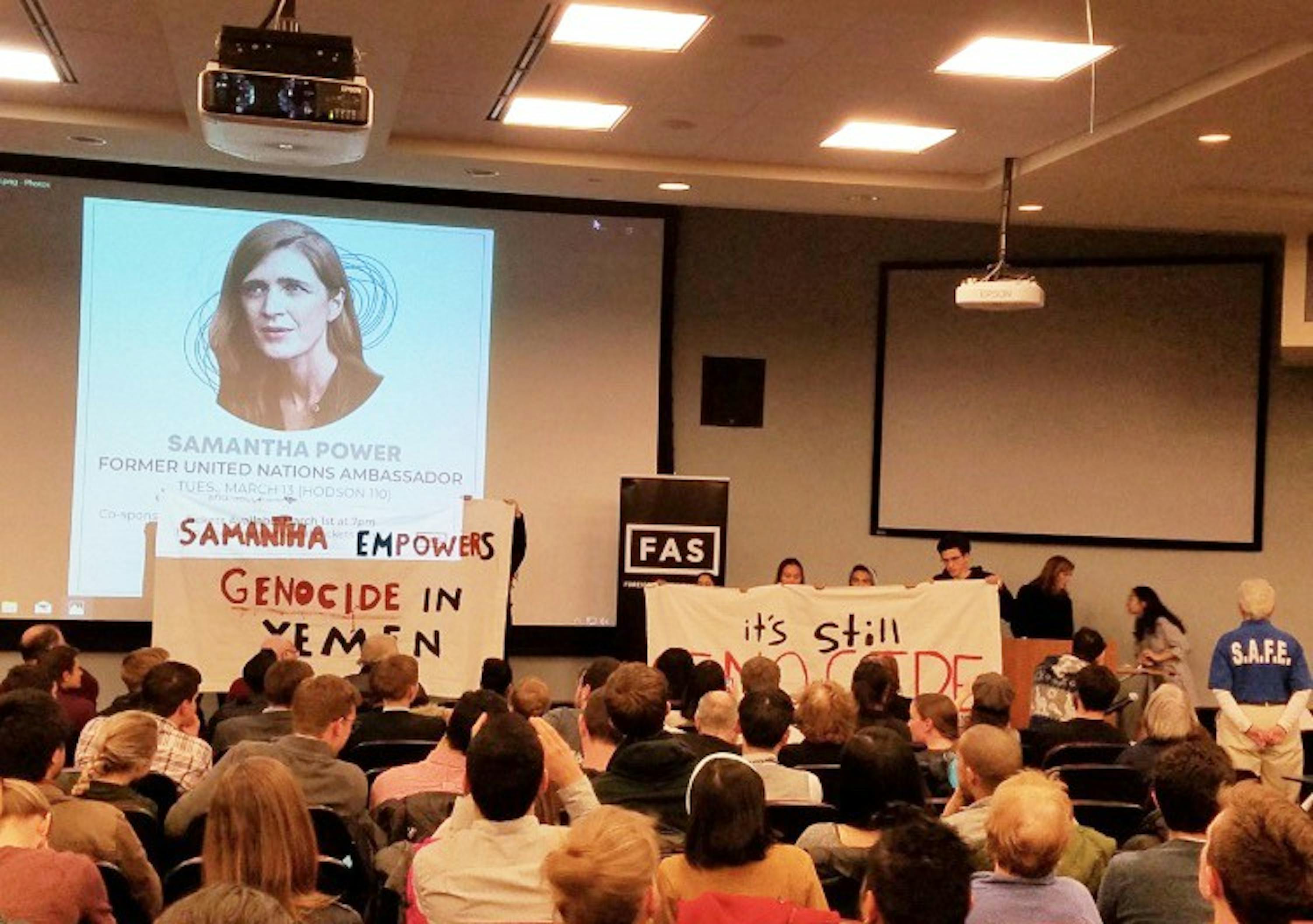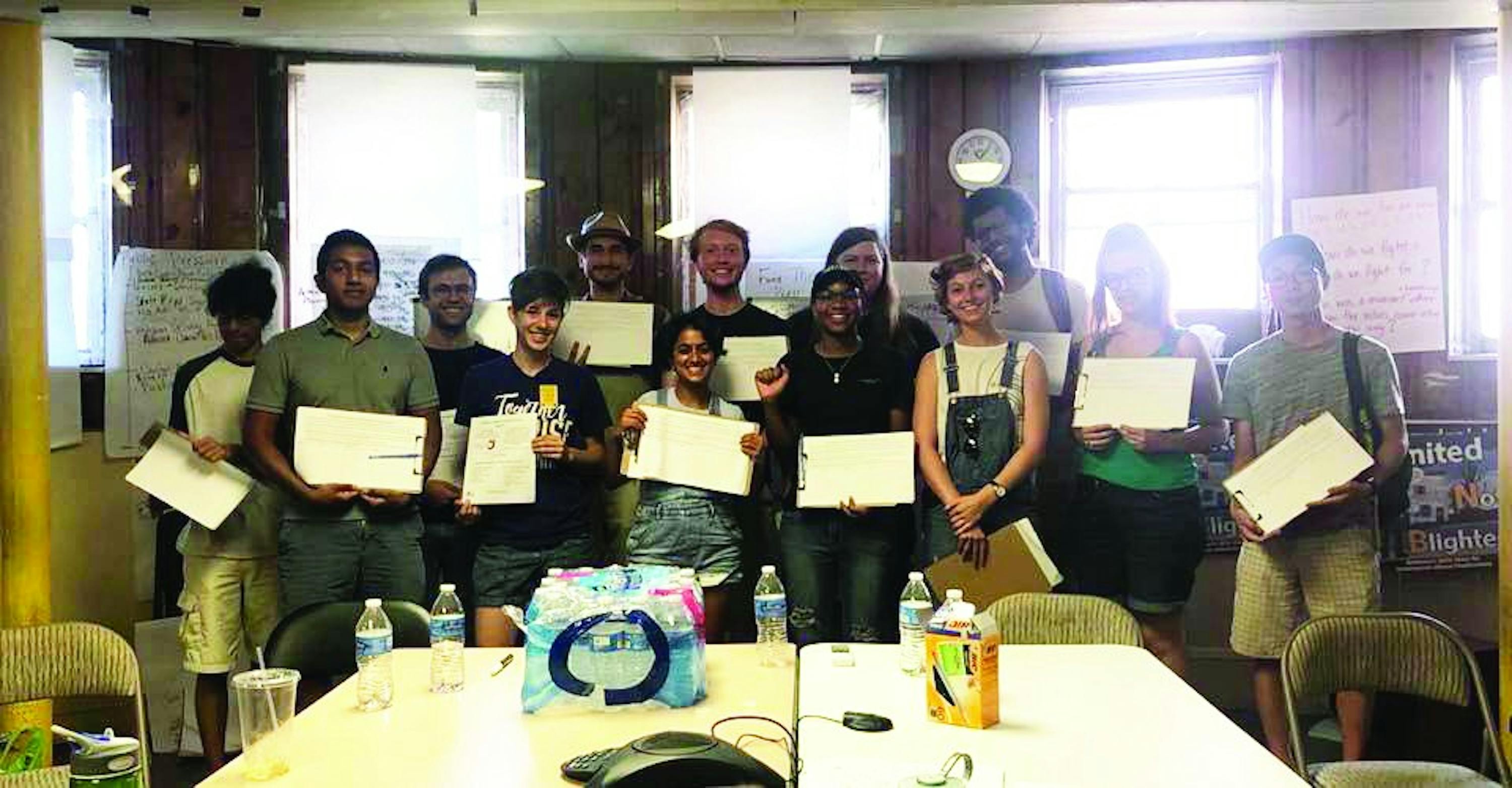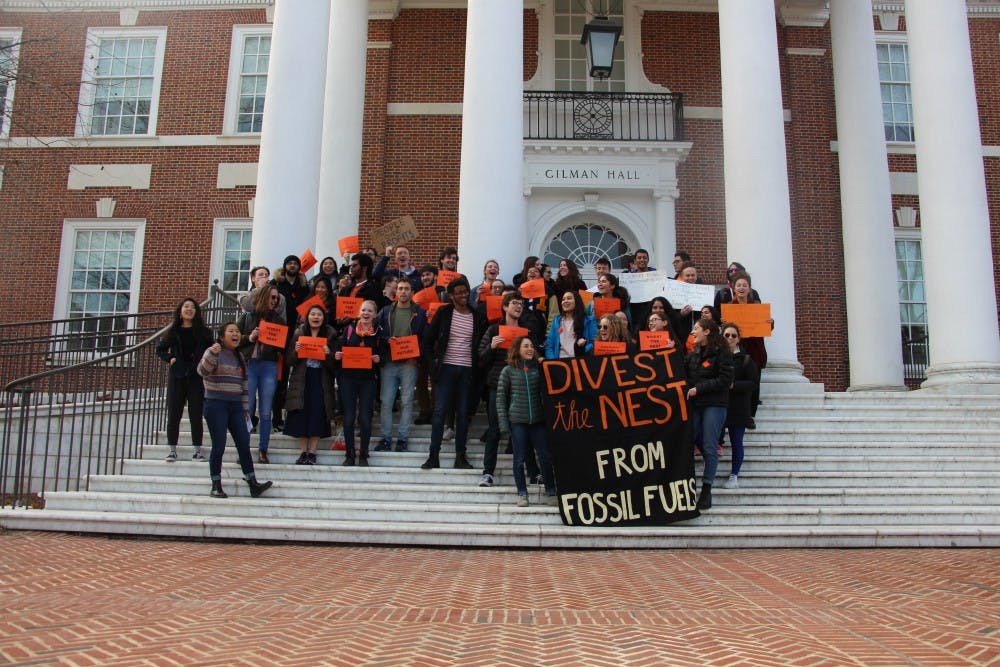Clarissa Chen, president of Refuel our Future, explained that one thing she learned from her efforts to persuade Hopkins to divest from fossil fuels is the unique ability of Hopkins students to sway the University. She reminded future student activists to recognize and use this.
“Students actually hold a lot of power. In collective organizing we have more power than Ron Daniels does, because if we come together and demand [some]thing, and this is something that is important to the University’s public image, then they’re going to move in that way,” she said.
Chen also stressed that something as simple as showing up and voicing your support at protests or rallies can have a profound impact.
“Even if you don’t want to be actively involved in the planning or the organizing around that, it’s just showing up that’s so important,” she said.“It’s a very simple political action to take.”

COURTESY OF EMELINE ARMITAGE
Emeline Armitage is the former co-president of Students for a Democratic Society (SDS), a social democratic student activism movement, and the former president of Voice for Choice, a pro-choice group. She stressed the importance of first finding a cause that you are genuinely passionate about.
“I just kept showing up,” Armitage said. “It’s not like Model UN or a debate thing where you can have another mark on your resume, it has to come organically.”
Although activism often involves reacting to injustices, it is important for incoming freshmen to remember that it is possible to take proactive political action as well. Armitage explained that although both SDS and Voice for Choice were created in response to events such as the Baltimore uprising and campaigns pushed by Hopkins Voice for Life, her most memorable forms of participation included voluntarily raising money for the Baltimore abortion fund.
“[In order to] raise money for an abortion fund, we would do bake sales, fundraisers [and] speaking events,” Armitage said. “It’s great because it’s something proactive we’re doing, we’re not just reacting to something.”

COURTESY OF JOHN GUESS
Senior Chisom Okereke is the president of the Black Student Union (BSU), a group that has taken a number of actions that successfully fostered change. Notably, the BSU presented the University’s administration with a list of demands which advocated for an increased recruitment of black professors and later led to the foundation of the Roadmap on Diversity and Inclusion. For future student activists, Okereke emphasized the importance of persistence and creating accountability.
“Persistence has really been something that has helped us get to where we are now [through] being loud and vocal,” Okereke said. “I think that one of the best ways to get administration to work with you is to establish accountability, so if you’re talking about it and people know about it, they know that it’s not something that can be pushed under the rug.”

COURTESY OF MIRA WATTAL
Junior Mira Wattal is an active member of Students Against Private Police (SAPP), a coalition of 11 different student groups who oppose the creation of a private Hopkins police force. For incoming freshmen interested in getting involved, Wattal explained that a necessary first step is gathering input from members of the community and always considering the potential consequences of their actions.
“Obviously, I wouldn’t recommend that students walk into Baltimore City and just pretend like they know what the issues are and how to fix them,” she said. “If you’re not a Baltimore City resident and you don’t know the City’s struggles, you will actually do more harm than good even if you have good intentions. It’s not about intentions, it’s about what the impacts are.”
She also recommended spending time building relationships with one’s peers, both on and off campus.
“One thing I really learned just from being around a lot of great student organizers or city organizers is just that community is really important, so cultivating those relationships... that’s what’s going to drive a sustainable movement,” Wattal said.

















